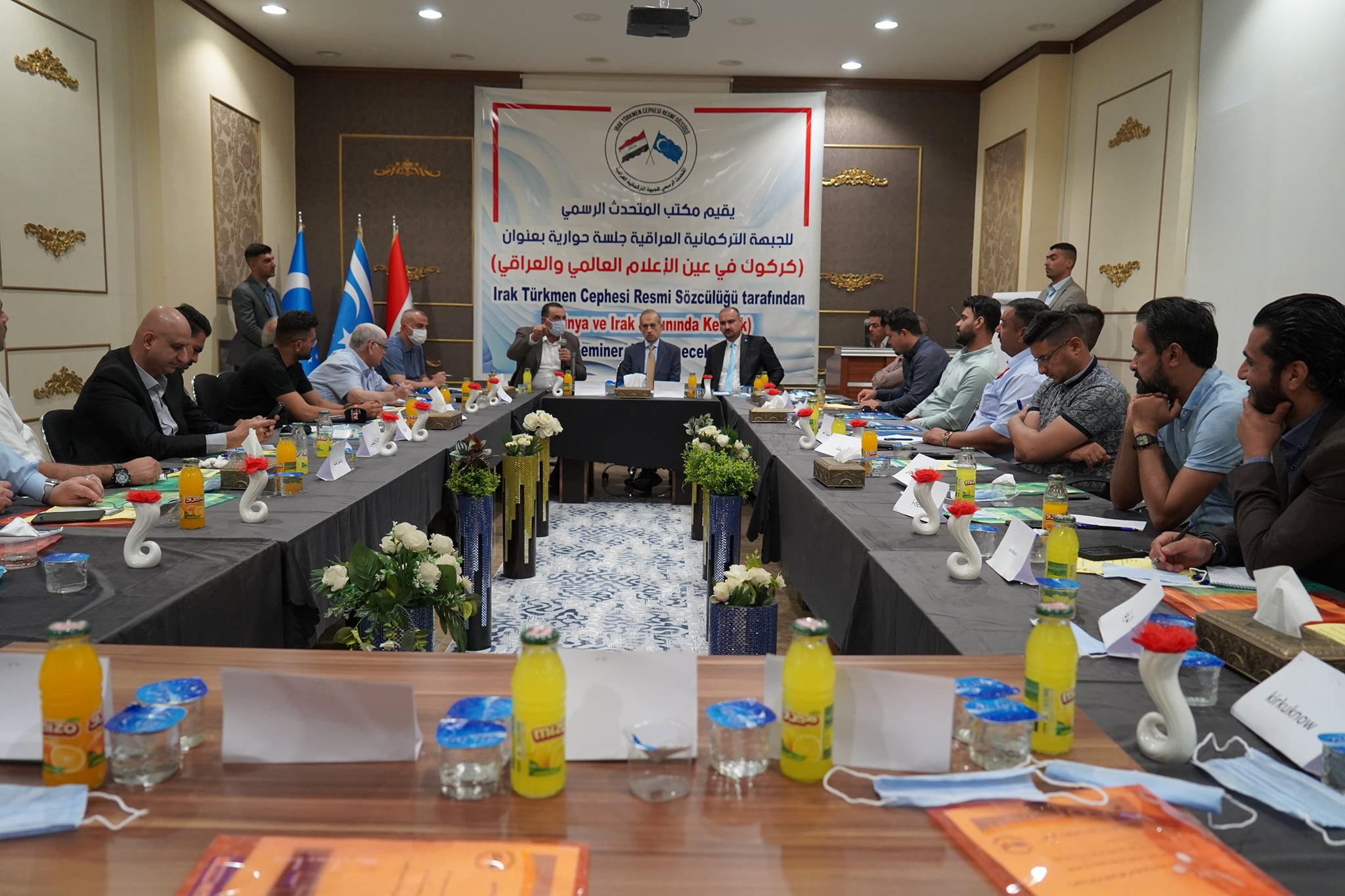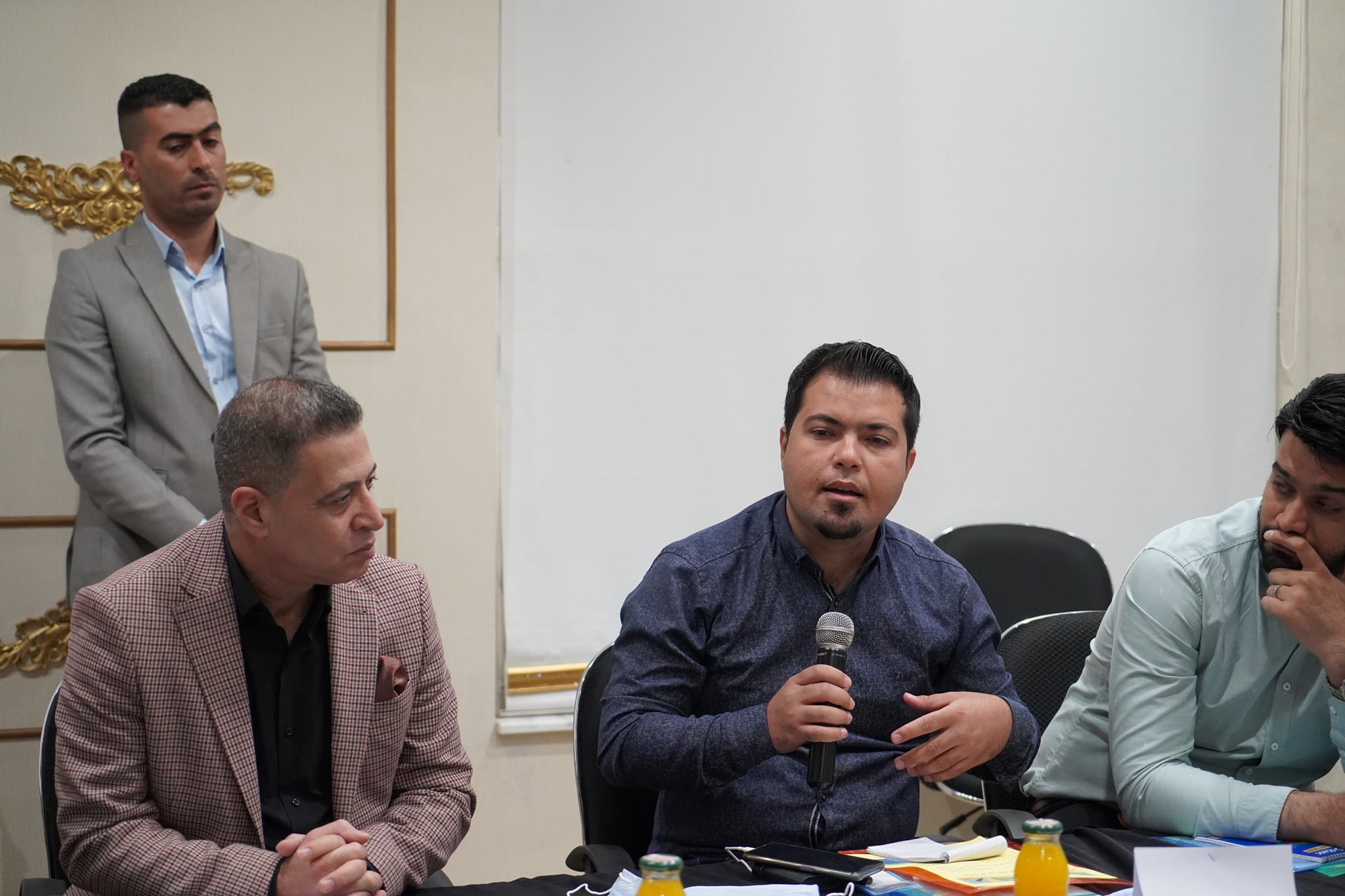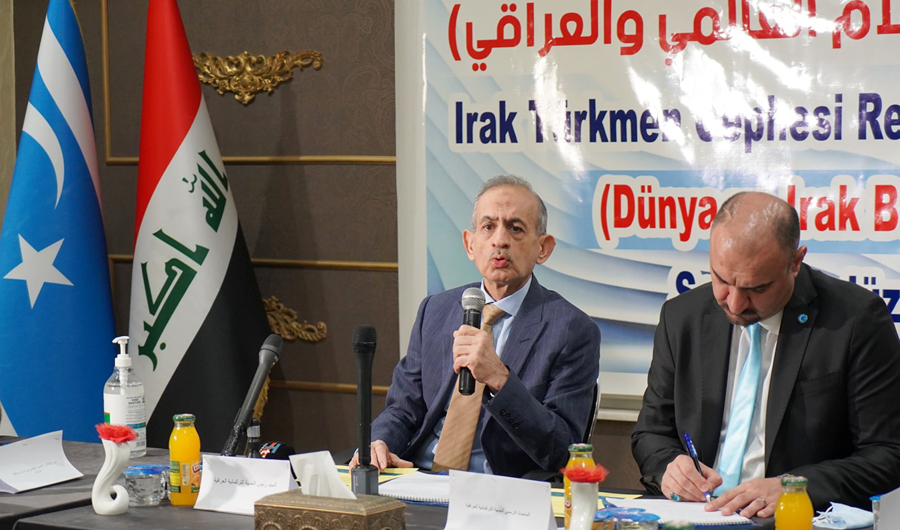The president of Iraqi Turkmen Front ITF till considers the proposal of the late Iraqi president Jalal Talabani for sharing Kirkuk administration among its ethnicities equally a guarantee for peaceful coexistence yet it has not been turned into an agreement.
Hassan Toran, ITF leader, told the media, in a gathering of “Kirkuk in the eyes of Iraqi & international media” for media channels on May 29th, “coexistence in Kirkuk means sharing of power and positions equally, 32% for the three main components (Arabs, Kurds & Turkmen) with consideration of power transition.”
“Coexistence in Kirkuk means sharing of power and positions equally,
ITF president said power sharing is a guarantee for coexistence. He criticized followers of late president and secretary general of the Patriotic Union of Kurdistan PUK, one of the main Kurdish parties, the key Kurdish role player in Kirkuk till 2017, for their disregard to the project Talabani proposed for Kirkuk.
Following the toppling of Saddam Hussein regime, Iraqi president Jalal Talabani suggested a project of sharing power in the multi-ethnic city of Kirkuk, 32% for Arabs, Kurds & Turkmen and 4% for the Christians.
The project was endorsed by Kirkuk provincial council on July 28th, 2009 yet it has not been implemented.
The northern oil-rich city of Kirkuk, Iraq's second largest oil reserves, is ethnically a mixed province for 1.2 million Kurds, Arabs, and Turkmen. It has long been at the center of disputes between Baghdad and the autonomous Kurdistan Regional Government KRG.

A session about Kirkuk in the eyes of Iraqi & international media. Photo by ITF media.
“The distribution, upon which Mam Jala’s project was based and proposed for a limited period of time, is the sole solution for the current and future conditions of Kirkuk and compatible with Iraqi constitution yet his comrades have not followed it,” he added.
“If the project had been implemented as it was, Kirkuk would have not reach such a situation.”
Kurds, whom controlled Kirkuk up to October 2017 when the so-called Islamic State ISIS was ousted by Iraqi forces, wanted Kirkuk, 238 kilometers north of Baghdad, to become part of the Kurdistan region through a referendum for independence in the three Kurdish province s and the disputed territories, which has been opposed by the Arab and Turkmen populations.
The disputed territories between Erbil and Baghdad extend from Khanaqin in the east on the border with Iran to the oil rich city of Kirkuk heading to the west of Mosul in Shingal, home to Ezidi ethno-religious minority, on the border with Syria.
Currently, Iraqi army, local and federal police, Brigade 61 of Special Forces along with PMF, are under Kirkuk joint operations’ command, an umbrella for security forces running the security of Kirkuk.
Toran has been elected as president of ITF last March to replace Arshad al-Salihi, head of the Turkmen bloc in the Iraqi parliament.
Turkmen, the third largest ethnic group in Iraq after Arabs and Kurds, are spread across the country, residing almost exclusively in the northern towns and villages stretching from Tal Afar through Mosul, Erbil, Altun Kopri, Kirkuk, Tuz Khurmatu, Kifri and Khanaqin. They are all Muslims, half Sunnis and half Shiites.
Turkmen political parties won eight seats out of 329 in Iraq's May 2018 parliamentary elections. ITF holds three seats, and the Turkmen Bloc has five seats.
Toran slammed at Baghdad and accusing it of being unfair in sharing the senior positions in Baghdad.
Regarding the security situation in Kirkuk, Toran reaffirmed the Turkmen do not reject cooperation between Baghdad and Erbil yet “we believe the total security dossier of Kirkuk should be controlled by the federal government and non-federal troops should not play any role in Kirkuk.”
“We believe the total security dossier of Kirkuk should be controlled by the federal government and non-federal troops should not play any role in Kirkuk.”
The turbulent security particularly in Kirkuk outskirts coincides with the putting in office military joint operation commands by the Iraqi and the regional government in Kirkuk and other disputed territories for exchange of intelligence information about moves by IS. The move was denounced by Arabs and Turkmen of Kirkuk.
The Turkmen always dreamt of Kirkuk governor position, a key seat always occupied by the Kurds and Arabs.
“It’s illogical to keep the position of the governor only between two ethnicities,” said Toran in the presence of acting governor of Kirkuk Rakan al-Jiburi, an Arab.
“The quota is not only by ethnicities in Kirkuk. Now a specific party is entitled to hold a position for a long term which is unacceptable.”
Toran criticized the Iraqi parliament for dissolvement of provincial councils leaving Kirkuk administration with no superior body.
“The pending of provincial councils by Iraqi parliament was a massive mistake which was an oversight body for local administrations and provincial authorities.”
End of 2019, the Iraqi parliament has decided to revoke provincial councils under pressure of October protests calling for reforms.

A session about Kirkuk in the eyes of Iraqi & international media. Photo by ITF media.
The ITF leader called on the media to investigate climate, environment and public service issues in the province to shed light on the shortcomings.
“16 hours power outage is unreasonable in a wealthy city like Kirkuk. Its important to know who is in charge: Rakan al-Jiburi, the municipality, Baghdad or Mustafa al-Kadhimi? We have to declare it for people.”
The political parties representing Kirkuk people are at stagnation to draw a road map for the oil-rich city.
“Occasionally the main three components debate but no long-term solution put forward. Part of our discussions was a joint force, proposed in 2012 yet it was not applaused,” he added.
Following the military defeat of ISIS, discord over security arrangements, public services, and the lack of a unified administration in the disputed territories, have plagued victims and survivors.
The political tension between Baghdad and Erbil left Kirkuk and the disputed territories missing the basic public services. Garbage collection is years-old challenge for Kirkukis. Power shortage in baking summer is blamed for low supply by Baghdad compared to the high demand by people for consumption.
Unemployment, poverty, and poor services of water and power supply are the main challenges the current Iraqi government could not handle.
Kirkuk has produced 2.86 million barrels in April compared to 3 million barrels last March generating 177 million Dollars USD while in March it made up $195 million for Iraq's national revenues, Iraqi ministry of oil said.





